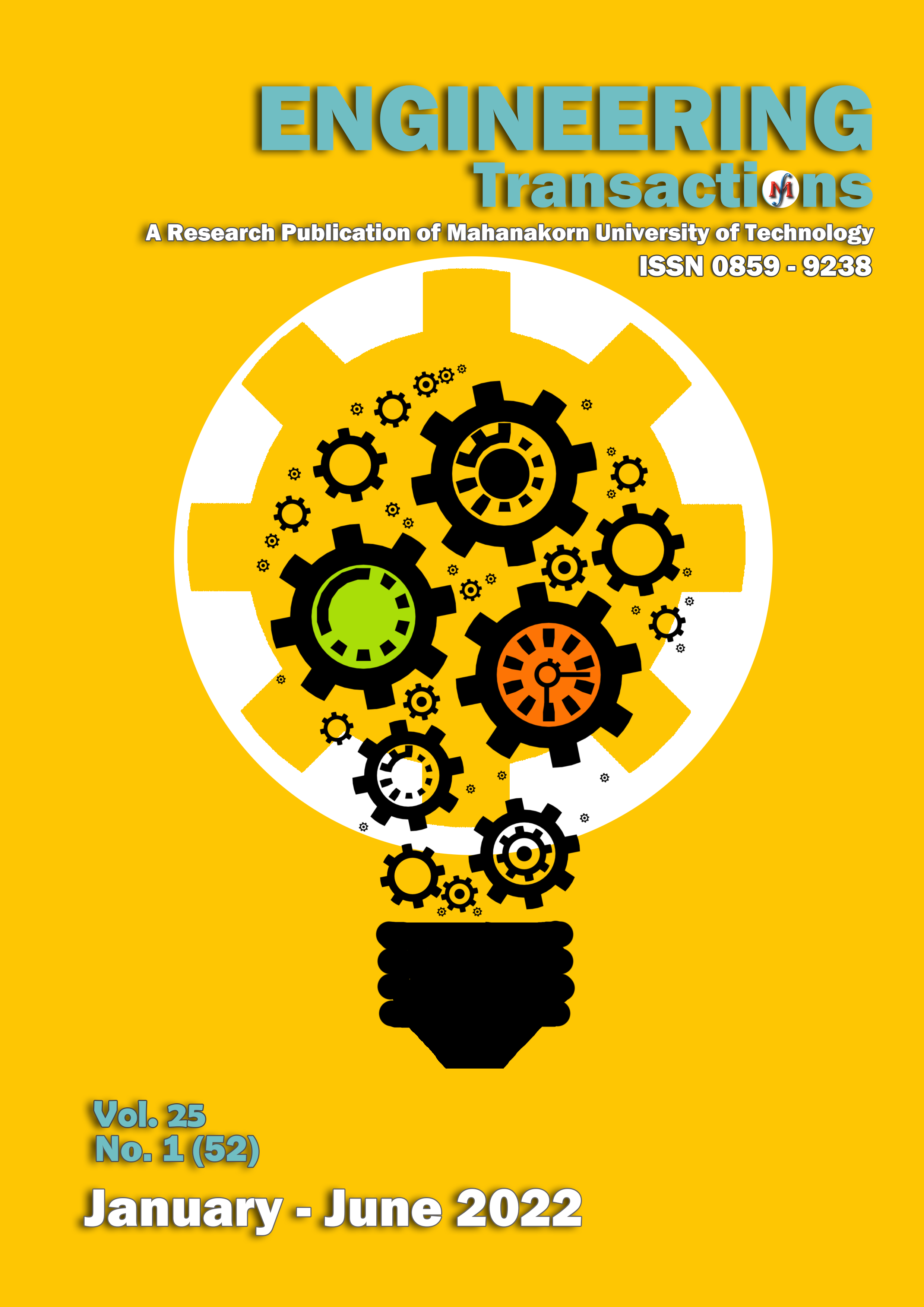Development of Outcome-based Learning and Analytical Thinking on Basic Electronics Course for Computer Engineering
Main Article Content
Abstract
This paper presents an analytical thinking and an outcome-based learning (OBL) for computer engineering students. A student-centered education is used with the efforts for understanding the analytical thinking on basic electronics to develop the soft-skills and knowledge management. Electronic devices are the main devices on many applications in the digital world. The objective of this paper is to introduce mainly the basic concept of electronics on computer engineering course. Based on OBL approach, the teaching effectiveness and student outcomes are evaluated by the results of assessment. Results show that students can achieve the basic knowledge on electronics, even it is hard to improve the analytical thinking within a course of basic electronics. Moreover, this development is a fundamental knowledge for the computer engineering students to create an innovation in the electrical engineering field for the future.
Article Details

This work is licensed under a Creative Commons Attribution-NonCommercial-NoDerivatives 4.0 International License.
Copyright @2021 Engineering Transactions: A Research Publication of Mahanakorn University of Technology
Faculty of Engineering and Technology
Mahanakorn University of Technology
References
H. Dai, W. Wei, H. Wang, and T. Wong, “Impact of Outcome-Based Education on Software Engineering Teaching: a Case Study”, in Proc. IEEE International Conference on Teaching, Assessment, and Learning for Engineering, Hong Kong, pp. 261-264, Dec. 2017.
ประสูตร เดชสุวรรณ, “การศึกษาที่มุ่งผลลัพธ์โดยใช้การวัดผลลัพธ์แบบ KAPIS สำหรับรายวิชาการวิเคราะห์วงจรไฟฟ้าของคณะวิศวกรรมศาตร์ มหาวิทยาลัยเทคโนโลยีมหานคร”, Engineering Transaction, vol. 21, no. 1(44), Jan-Jun, 2018.
X. Zhang, Y. Ma, Z. Jiang, S. Chandrasekaran, Y. Wang, R. F. Fofou, “Application of Design-Based Learning and Outcome-Based Education in Basic Industrial Engineering Teaching: A New Teaching Method”, Sustainability, 13, 2632, 2021.
S. Prongnuch and S. Sitjongsataporn, "Voice Controlled Comparator Improvement Based on Resource Utilization in SoC Ecosystem for Parking Assist System," Journal of Mobile Multimedia (JMM), Vol.18, No.4, 2022.
S. Prongnuch and S. Sitjongsataporn, "Differential Drive Analysis of Spherical Magnetic Robot Using Multi-Single Board Computer," International Journal of Intelligent Engineering and Systems (IJIES), Vol.14, No.4, 2021.
B. R. A. Kumar, “Value-Added Courses with industry endorsement for Bridging Curriculum Gap in the Outcome-Based Learning: An Effective Strategy to Post-graduate Studies”, Journal of Education, 2021.
S. Sitjongsataporn, W. Sukjit, P. Promwong, P. Taninsurat, P. Dechsuwan, “Study of Implementing Outcome-based Learning in Electric Circuit Analysis for Undergraduate Students”, The International STEM Education Conference (iSTEM-Ed), Bangkok, Thailand, pp. T360-T363, 2018.
C. M. M. Isa, W. Tahir, H. M. Saman, J. Jani, and M. Mukri, “Understanding of Outcome-Based Education (OBE) Implementation by Civil Engineering Students in Malaysia”, in Proc. IEEE International Conference on Engineering Education, Kanazawa, Japan, pp. 96-100, Nov. 2017.
P. P. K. Sundari, S. Widoretno, and A. Shadi, “Effectiveness of analytical thinking–based module to improve students’ learning outcomes using concept map”, Journal of Physics: Conference Series, 1511, 012110, 2020.
A. Karenina, S. Widoretno, and B. A.Prayitno, “Effectiveness of problem solving-based module to improve analytical thinking”, Journal of Physics: Conference Series, 1511, 012093, 2020.
“Bloom’s Taxonomy”, University of Florida, [Online]. Available
at https://citt.ufl.edu/resources/the-learning-process/designingฝthelearning-experience/blooms-taxonomy/. [Accessed: 30-May-2021].
“Creatrix Campus reveals new outcome-based teaching models
for tech savvy educators”, Aug. 30, 2016. Retrieved from
Office of Higher Education Commission, “National Qualifications Framework for Higher Education in Thailand”,
Implementation Handbook, November 2006. Available source at
http://www.mua.go.th/users/tqfhed/news/FilesNews/FilesNews8/NQFHEd.pdf. [Accessed on May 30, 2021].


